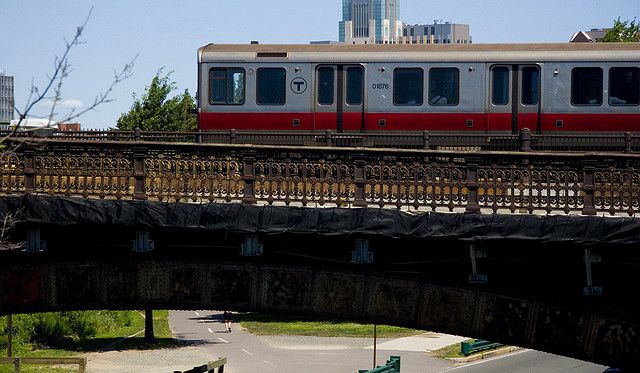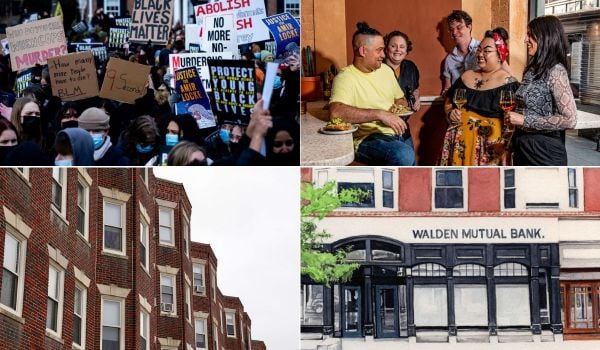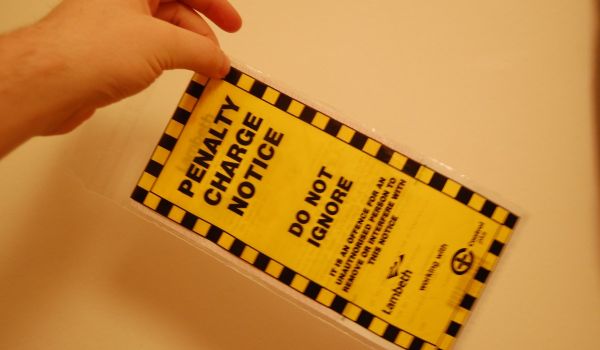Editor’s Note: This is a guest post from NAC partner Latitude.
This is part 1 of a 3-part series. Parts 2-3 will be published at latd.com and americancity.org over the next two weeks.
Download the full Tech for Transit report summary (PDF) here.
In November 2010, Latitude Research and Next American City launched a study to investigate how new technologies and information access can improve transit and other life experiences; specifically, the study sought to uncover how cities, transportation providers and technology companies can work together to develop these information-based solutions and, ultimately, encourage adoption of more sustainable transit.
The results of the study indicate that, while users value the freedom and control a car provides, mobile information solutions could replicate this sense of autonomy without needing to own a car—primarily by helping users to make informed, in-the-moment decisions about what’s available near them and the best ways to get around. “Real-time and personalized transit information has the ability to make public transit a more flexible, equitable, and enjoyable experience, thus minimizing the perceived experience gap between car ownership and other modes of transit typically thought less convenient or accessible by would-be users,” explains Marina Miloslavsky, study lead and Senior Research Analyst at Latitude.
Study participants—18 regular car users who agreed to go car-free for one week—experienced unexpected benefits as a result of re-thinking their daily transit. Two-thirds reported that the car-free week exposed them to new things, and twice as many participants felt more integrated into their communities than had expected to before the study week, with the majority also citing health and money-saving reasons to reduce their reliance on driving.
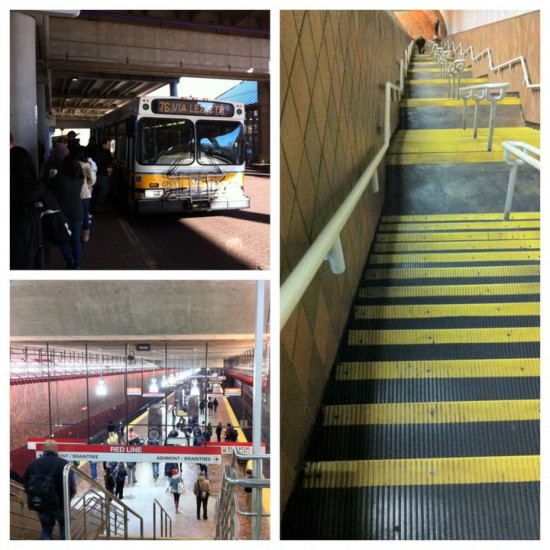
“New daily commute” — photo by Boston study participant, Ben L.
A Deprivation Study: Regular Drivers Go Car-Free for One Full Week
Participants were regular drivers, 24-51 years of age, living in the Boston and San Francisco metro areas who agreed to forego use of their cars for one week. Boston and San Francisco were chosen due to their dedication to improving transit through new and innovative technological initiatives, including open data solutions. “Oftentimes, we can’t envision new possibilities without undertaking something extreme,” says Miloslavsky, who specializes in deprivation as a study methodology. “By giving up their cars for a week, study participants were forced to deal with unexpected scenarios, think creatively, utilize available resources and deeply reflect on their everyday choices. The beauty of deprivation as a study design is that it’s so immersive and experiential; it can’t be fully recreated through thought experiments or role-playing scenarios. By following our participants through every step of the lifestyle change, we were able to get a real-time glimpse into this novel situation and the poignant insights that arose from it.” (Visit latd.com or email bconry@latd.com to learn more about Latitude’s deprivation and immersion studies.)
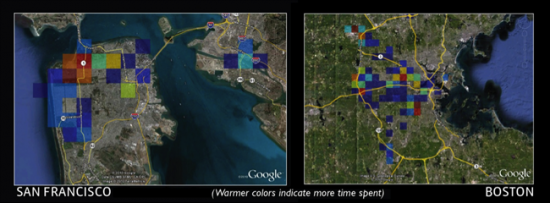
Tracking select participants’ movements during their car-free week. GPS tracking and analytics provided by Latitude’s technology partner for this study, Locately.
Key Study Insights
- Autonomy matters more than ownership, and it’s enabled by tech. When it comes to transportation, users want an experience that offers them freedom. More than two-thirds of participants cited convenience, flexibility and control as the chief advantages of car usage—not comfort, status, or any other benefit inherent in vehicles themselves. Information received through apps or the mobile Web can help to replicate these “experience-based” benefits for users who travel without a car (or who are simply trying to reduce their reliance on cars). In fact, after going car-free for just one week, 15 of 18 participants felt they could continue going car-free, but specified that they would like access to car-sharing or ride-sharing services such as Zipcar or Zimride. In short, new forms of information access enable choice; they can aid with smart planning and in-the-moment decision-making, reduce users’ frustrations, and soften preconceived notions about the downsides of more sustainable transit options when compared with driving.
- If you ditch your car (at least some of the time), you gain a community. Twice as many participants felt more integrated into their communities as a result of going car-free than had expected to. “This week I’ve really enjoyed walking along Market Street and discovering what a fantastic city I live in,” explains Mark V., a study participant from San Francisco. “I always knew it was a great place to live, but being forced to rely on public transportation only reinforced this.” In many cases, shared offline experiences such as riding the same bus or walking the same route every day prompted positive personal discoveries of new places and people as well as unexpected emotional connections. “When I got into my car for the first time after the week was over, I actually felt very claustrophobic and kind of lonely,” recalls Kristina K., a study participant from Boston.
The use of car-free transit could also have a positive effect on the local economy, insofar as changing one routine forces people to change other routines. More than two-thirds of participants altered their shopping habits during the car-free week—which suggests opportunities for local businesses to step up and become an integral part of the discovery process and, ultimately, people’s new daily routines. For example, Web-based tools like Geomium can encourage and enrich offline experiences by simply letting people know what’s around them, wherever they happen to be. This might be information about businesses of interest, promotions, community and cultural events, and so on.
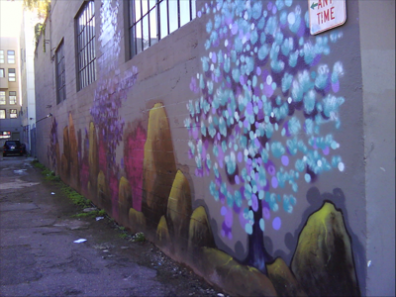
“Public art” — photo by San Francisco study participant, Jennifer R.
- A combination of “me + we” benefits are driving use of car-free transit options. Amongst participants, the top three motivators for going car-free were that it’s “better for the environment,” “money-saving” and “healthier.” New technologies have allowed people to explore different aspects of their personalities and values, and to achieve multiple goals (like reducing their carbon footprint and saving money) simultaneously. This personal + altrustic, dual-benefit model—the ability to achieve both at once—is increasibly becoming an expectation for users. “[I’d like to see] a Web site or app that allows you to compare options for getting to different places, and maybe adds information like carbon emissions, calories burned, and so on, for each option,” suggests Keren S., a study participant from Boston.
Download the full study report here, and check back for parts 2 and 3 of the study results discussion.
Latitude & Next American City – Tech for Transit: Designing a Future System (Study Summary)
Study lead: Marina Miloslavsky
Latitude is an international research consultancy exploring how new information and communications technologies can enhance human experiences. Amidst a landscape of profound technological change, they consistently deliver next-generation insights and assist organizations in discovering and developing new opportunities. To learn more about working with Latitude, contact Brian Conry (bconry@latd.com). For press inquiries, contact Kim Gaskins (kgaskins@latd.com).

